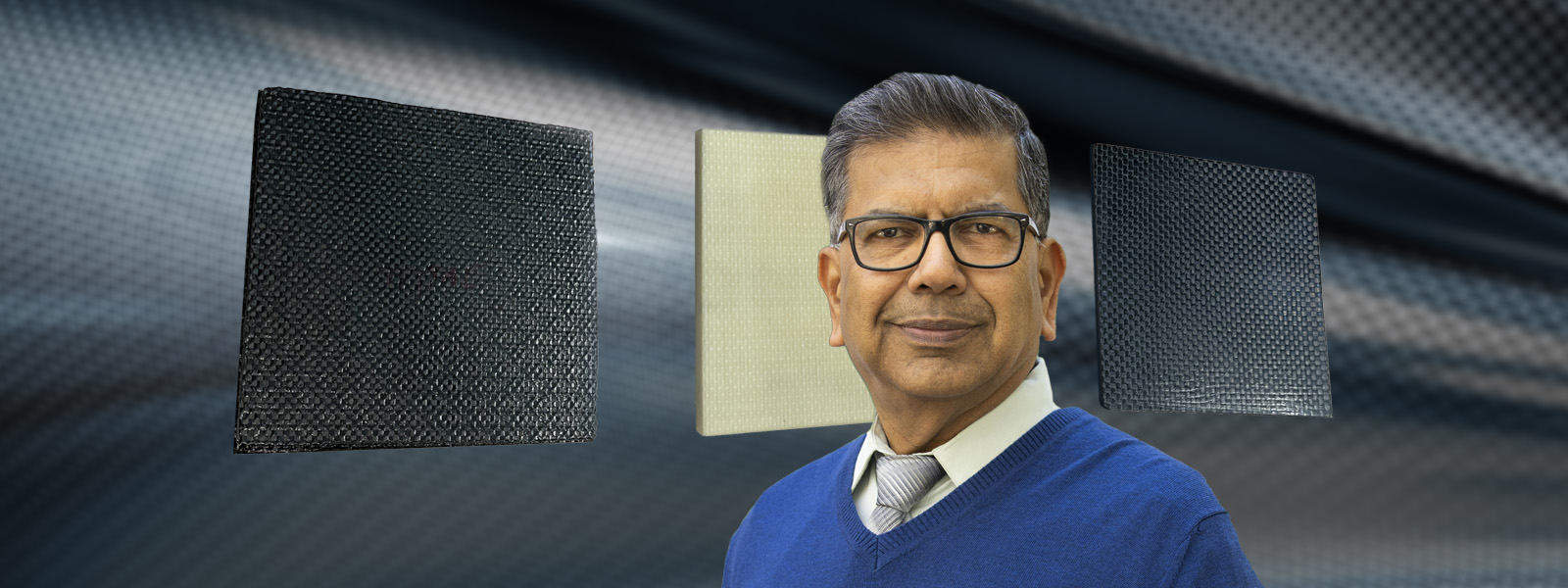For Dr. Bhavani Sankar, it’s not about the accolades.
Sure, he’s won plenty of honors over the course of his 43-year engineering career. Sure, he’s published about 125 papers and three books. And yes, he’s earned fellowships in the American Institute of Aeronautics and Astronautics, the American Society of Mechanical Engineers, and the American Society for Composites. His list of achievements is long and formidable, but even still, he never loses focus of what’s most important.
“It always looks big, but after I get the award, I just forget it and move on. I have the attitude of just, ‘Okay, so another award.’ I don’t think very big of it, because your goal is to keep working and training students,” he said.
It’s the students, and his relationships with them, that motivate him and give him joy in his work. Helping them learn and understand the fundamentals, and eventually watching them graduate and pursue successful careers, is what Sankar cites as the most rewarding part of his job.
“I always enjoyed working with the students. That is the greatest benefit of being a professor,” he said. “There is a happiness in that, training the students.”
He said that developing relationships with the students is a matter of recognizing the individuality of each of them and adjusting to each one’s separate abilities and personalities.
“I think the differences are like our five fingers of the hand. Each one has different talents, different skills, and different aptitudes,” he said. “I always have good relations with my students, because if you don’t have good relations, they cannot learn.”
Sankar’s earliest experience with the thrill of teaching came when he himself was a college student. He realized, while answering questions from his classmates, that in order to fully grasp and have a deep understanding of the material, you have to be able to explain it effectively to others. From then on, Sankar’s appreciation for the importance of communication has had a heavy influence on his career.
“I learned how to study by talking to other students. When they ask questions, then you realize you don’t know much, you have to go and study more to answer their questions,” he said. “So that, trying to help other students, helped me to learn properly. That led to the teaching career.”
Nowadays, Sankar’s work and research centers mainly on the mechanics of composite materials for aerospace application. Before making the composites, he uses computer models to predict their properties given the proportions of fibers, resin, and other materials that will go into them. This allows him to conduct trials without having to make actual samples yet at that stage. He then puts carbon cloth into a mold to create the composite plates, structures that are strong and stiff despite being lightweight. Once the composites are actually made, he uses them to study questions of structural mechanics, plate theories, fracture mechanics, and how structures fail. Specifically, he tests how much of a load the plates are able to bear before breaking, buckling, or fracturing. The behavior of the plates, which are mostly squares small enough to hold in one hand, are meant to simulate the behavior of actual aircraft structures, and the results of the tests can be used to predict the load-bearing abilities of those full-size structures.
Imparting his vast knowledge and wisdom, built on decades of experience, to students of this field, and incorporating technological developments such as 3D printing and machine learning that allow much more efficient and effective methods of studying it, is the aim of his career going forward.
“My career goal now is to train students. Education is my career goal,” he said. “Instead of doing more and more research, I want to pass on my knowledge to the younger generation.”
Story by: Ben Crosbie
Marketing & Communications Student Assistant
UF Mechanical & Aerospace Engineering
October 9, 2023

